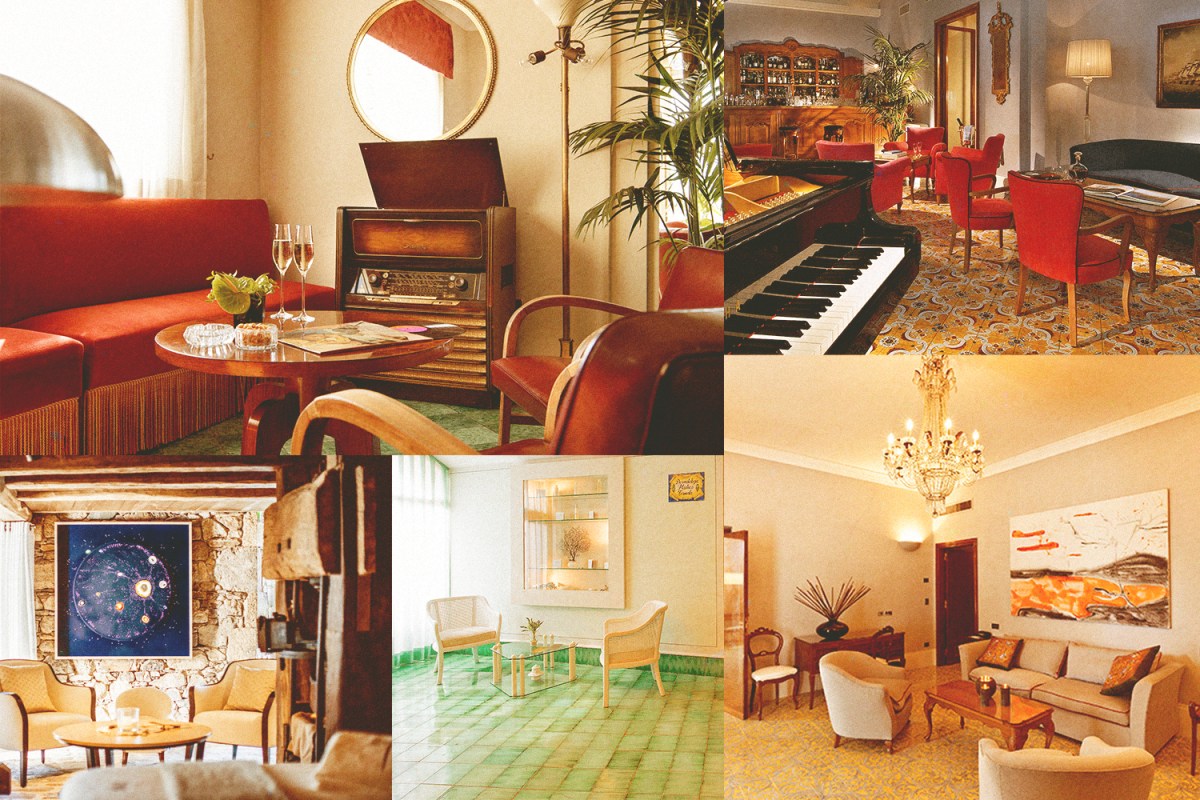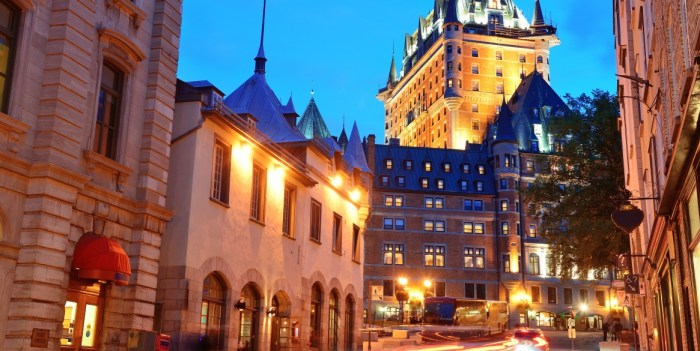Historic Hotels You Can Actually Sleep In
Historic Hotels You Can Actually Sleep In offers travelers a unique opportunity to experience the charm and character of places that have stood the test of time. These accommodations are not just about a cozy bed; they are gateways to the past, allowing guests to immerse themselves in rich histories and fascinating stories. Whether you are exploring the intricacies of ancient architecture or enjoying the ambiance of a bygone era, these hotels promise a stay that goes beyond the ordinary.
From opulent ballrooms to quaint, rustic interiors, historic hotels are scattered across the globe, each with its own unique tale to tell. Many have hosted famous figures or witnessed significant events, adding an extra layer of intrigue to your stay. By choosing a historic hotel, you not only enjoy a comfortable night’s sleep but also participate in preserving the legacies that these remarkable structures embody.
Introduction to Historic Hotels

Source: insidehook.com
Historic hotels are accommodations that boast a rich past, often housed in buildings that have stood the test of time and witnessed significant events or societal changes. These hotels are not just places to rest; they embody a narrative that connects guests to the cultural and historical fabric of their surroundings. Staying in a historic hotel provides travelers with an immersive experience, allowing them to step into another era while enjoying modern comforts.The significance of staying in historic accommodations lies in the unique stories and architectural styles they offer.
Each hotel carries its own charm, reflecting the period it was built in, whether it be Victorian, Colonial, or Art Deco. Guests can often explore the very spaces that historical figures have occupied, giving them a sense of connection to the past. The appeal of these hotels to travelers often stems from the desire for authentic experiences, where the backdrop is as captivating as the journey itself.
Unique Architectural Styles
One of the most captivating aspects of historic hotels is their diverse architectural styles. These hotels often serve as a living museum, showcasing the craftsmanship and design philosophies of their time. Staying in a such establishment offers guests a chance to appreciate:
- Victorian Elegance: Characterized by intricate details, ornate furnishings, and grand staircases, these hotels often transport guests to the romanticized era of the 19th century.
- Colonial Grandeur: Featuring classic symmetry and spacious verandas, these hotels reflect the influences of colonialism, offering a glimpse into the past with their expansive gardens and stately designs.
- Art Deco Chic: Known for its bold geometric shapes and luxurious materials, Art Deco hotels embody the spirit of the roaring twenties, often featuring vibrant colors and lavish decor.
The preservation of these unique architectural styles not only enriches the travel experience but also plays a crucial role in maintaining cultural heritage. Each style tells a story of its time, inviting guests to appreciate the history and artistry behind the structures they inhabit.
“Staying in a historic hotel is like stepping into a time capsule, where every corner whispers tales of the past.”
Notable Historic Hotels Around the World

Source: hotelscombined.com
Historic hotels offer not just a place to stay, but a chance to step back in time and experience a piece of history. These hotels have stories to tell, enriched by their unique architecture, cultural significance, and notable guests. Exploring these historic havens can add a profound element to your travel experience, making it memorable in more ways than one.Many of the world’s iconic hotels are steeped in fascinating history and showcase remarkable architectural styles.
This section highlights some of the most renowned historic hotels, their unique features, and the historical events that have taken place within their walls.
Famous Historic Hotels
Each of these hotels has a story worth sharing, embodying the essence of their time while offering modern comforts.
- The Savoy, London: Opened in 1889, this hotel features a stunning blend of Edwardian and Art Deco architecture. It was the first hotel in the world to have electric lighting. The Savoy has hosted notable figures like Oscar Wilde and Winston Churchill.
- Hotel del Coronado, California: Built in 1888, this Victorian beach resort is known for its distinctive red roof and has hosted celebrities such as Marilyn Monroe. It’s rumored to be haunted, adding an air of mystery to its historical charm.
- The Ritz, Paris: Established in 1898, The Ritz is synonymous with luxury and sophistication. Its ornate façade showcases classical French architecture and has welcomed luminaries like Coco Chanel and Ernest Hemingway.
- Raffles Hotel, Singapore: Dating back to 1887, this hotel is an exemplary model of colonial architecture. It is famous for its Long Bar, where the Singapore Sling cocktail was created, and has hosted numerous legendary guests, including Charlie Chaplin.
Historical Events Associated with Select Hotels
Many historic hotels have been the backdrop for significant events that shaped history.
- The Hotel Pennsylvania, New York: This hotel was pivotal during World War II, serving as a hub for soldiers before their deployments. Its location was strategic for troops heading to the front lines.
- Hotel Imperial, Vienna: Opened in 1873, it has been a witness to numerous historical events, including the signing of treaties and hosting dignitaries, especially during the Austro-Hungarian Empire.
- The Fairmont San Francisco: This hotel was a crucial site in the aftermath of the 1906 earthquake, serving as a refuge for displaced residents and a meeting place for city leaders during recovery efforts.
Architectural Styles of Notable Historic Hotels
The architectural styles of historic hotels often reflect the era in which they were built, showcasing intricate designs and craftsmanship.
- Neoclassical: This style is exemplified by The Ritz in Paris, featuring grand columns and elaborate stonework that evoke a sense of timeless elegance.
- Victorian: Seen in the Hotel del Coronado, Victorian architecture is characterized by ornate detailing and asymmetrical shapes, capturing the romanticism of the late 19th century.
- Art Deco: The Savoy in London embodies the Art Deco movement with its geometric patterns and luxurious materials, reflecting the glamour of the early 20th century.
- Colonial: Raffles Hotel’s colonial architecture showcases high ceilings, wide verandas, and lush tropical landscaping, a hallmark of the period in Southeast Asia during British rule.
“Historic hotels are not just places to sleep; they are portals to the past, offering insight into the lives of those who walked their halls.”
Criteria for Choosing a Historic Hotel
When selecting a historic hotel, various factors play a pivotal role in ensuring a memorable stay that balances charm with comfort. Understanding these criteria is essential for travelers who seek not just a place to sleep, but an immersive experience that reflects the rich history of its surroundings. By considering location, amenities, and authenticity, guests can enhance their travels and enjoy a unique getaway.Location is one of the foremost criteria when choosing a historic hotel.
Proximity to local attractions and historical landmarks can greatly enhance your experience. Amenities, while secondary, significantly contribute to the comfort and enjoyment of your stay. A well-rounded historic hotel should offer modern conveniences without compromising its historic character. Evaluating these factors allows travelers to make informed decisions and ensures that they immerse themselves in the culture and history of the area.
Importance of Location and Amenities
The significance of location in a historic hotel cannot be overstated. Staying in an area steeped in history provides guests with immediate access to cultural sites, museums, and historical attractions. For instance, a hotel located within walking distance of the Colosseum in Rome or the historical French Quarter in New Orleans can enhance the travel experience by offering easy exploration.
In addition to location, amenities should not be overlooked. A historic hotel that combines the old-world charm with modern conveniences can offer a seamless experience. Key amenities to consider include:
- Free Wi-Fi: Essential for both leisure and business travelers to stay connected.
- On-site dining: Access to restaurants that serve local cuisine enhances the experience.
- Guided tours: Some hotels provide tours highlighting their historical significance and nearby attractions.
- Accessibility options: Important for ensuring all guests have a comfortable stay.
Assessing the Authenticity of a Historic Hotel
Authenticity is a critical aspect when choosing a historic hotel. Guests should seek hotels that maintain their original architecture and décor, as this helps preserve the stories and experiences of the past. To assess authenticity, travelers can consider the following aspects:
- Preservation efforts: Check if the hotel has undergone renovations that respect its historical integrity.
- Historical documentation: Hotels that provide information about their history and significance often signal a commitment to authenticity.
- Local partnerships: Authentic hotels often collaborate with local historians or cultural organizations, providing guests with a deeper insight into the history.
- Guest reviews: Reading reviews can reveal insights into the hotel’s character and authenticity from past guests’ experiences.
In summary, choosing a historic hotel involves careful consideration of location, amenities, and authenticity. By prioritizing these factors, travelers can ensure a memorable and enriching experience that connects them with the past while providing modern comforts.
Experiences and Activities in Historic Hotels
Staying in a historic hotel offers more than just a unique place to rest your head; it provides an immersive experience that connects guests to the past. Each hotel carries its own story, often reflected in the architecture, decor, and services offered. Engaging in the activities available within these hotels can make your stay truly memorable.Historic hotels often feature unique experiences that enhance the charm of their heritage.
From guided tours to themed dining events, there’s an abundance of options that allow guests to delve deeper into the hotel’s history and ambiance. Below are some notable activities that highlight the character of these remarkable establishments.
Unique Experiences in Historic Hotels
Many historic hotels curate activities that embrace their storied past and celebrate their distinctive character. Here are some examples of engaging experiences guests can enjoy:
- Guided Historical Tours: Many hotels offer tours that explore the building’s history, architecture, and notable guests. For instance, the Fairmont Banff Springs Hotel in Canada provides guests with a chance to learn about its Scottish Baronial architecture and its role in Canadian history.
- Culinary Experiences: Some historic hotels feature dining options that reflect the culinary traditions of their region or era. The Hotel Del Coronado in California often hosts themed dinners that celebrate its Victorian heritage, offering dishes inspired by historical recipes.
- Live Entertainment: Events such as jazz nights, classical music performances, or period-themed soirées create an atmosphere that reflects the hotel’s historical significance. The historic Omni Parker House in Boston hosts live performances that echo its rich literary past, attracting guests who appreciate a blend of culture and history.
- Workshops and Classes: Certain hotels offer classes related to local crafts, cooking, or art forms unique to the area. The historic Hotel Hershey in Pennsylvania, for instance, provides chocolate-making classes that connect guests with the hotel’s founder, Milton S. Hershey.
Themed Events Hosted by Historic Hotels
Themed events are a fantastic way for historic hotels to create memorable experiences that celebrate their heritage. These events often draw on the history of the hotel or the surrounding area, providing guests with opportunities to engage in unique festivities.
- Seasonal Celebrations: Many hotels host seasonal events, such as Christmas balls or Halloween ghost tours, that embrace the spirit of the season while highlighting the hotel’s past. The historic Ritz Paris, for example, hosts extravagant holiday festivities that echo its glamorous history.
- Cultural Festivals: Historic hotels often participate in or host local festivals that celebrate the region’s culture. The Hotel Monteleone in New Orleans is known for its participation in Mardi Gras, offering guests exclusive packages that include parade viewing and themed parties.
- Historical Reenactments: Some hotels partner with local history organizations to host reenactments of significant events. The Gettysburg Hotel in Pennsylvania frequently welcomes reenactors who recreate pivotal moments from the Civil War, allowing guests to witness history firsthand.
- Art Exhibitions: Hotels with rich artistic backgrounds often showcase local artists or historical art collections. The historic Hotel du Vin in Birmingham features rotating art exhibitions that reflect the hotel’s heritage, giving guests a chance to appreciate both art and history during their stay.
Engaging in these activities not only enhances your stay but also deepens your connection to the hotel’s unique history, making your experience truly unforgettable.
Challenges of Staying in Historic Hotels
Staying in historic hotels can be a unique and enriching experience, but it also comes with its own set of challenges. While the charm and character of these establishments attract many travelers, there are potential drawbacks that can affect comfort and convenience. Understanding these challenges can help guests prepare for their stay and appreciate the balance between preservation and modern amenities.Historic hotels often face difficulties in maintaining the delicate balance between preserving their rich history and providing modern comforts.
Guests may find that some essential amenities are lacking or that the layout of rooms does not always align with contemporary expectations. Renovations can improve comfort but may also disrupt the original architecture that lends these hotels their appeal.
Common Challenges Faced by Guests
Travelers might encounter various issues when staying in historic hotels that can impact their experience. The following points highlight some of these challenges:
- Limited Modern Amenities: Many historic hotels prioritize preservation over modernization, which can result in limited access to amenities such as air conditioning, high-speed internet, or elevators. For example, some guests have reported struggling with the absence of climate control in locations with extreme weather conditions.
- Unconventional Layouts: Historic buildings often have unique layouts that can make navigating the space challenging. Guests might find narrow staircases or long corridors that don’t easily accommodate luggage, reflecting the original design of the building.
- Sound Insulation: Older buildings may lack soundproofing, leading to disturbances from other guests or street noise. Individuals have shared stories about sleepless nights due to noisy neighbors or the sounds of the city filtering through thin walls.
- Maintenance Issues: With age comes wear and tear. Some travelers have experienced inconveniences such as faulty plumbing or outdated electrical systems, which can detract from the overall enjoyment of their stay. For instance, a guest at a historic inn noted a persistent leak in the bathroom that required multiple calls to the front desk for resolution.
- Temperature Control: Many historic hotels do not have centralized heating or cooling systems. Guests often rely on portable heaters or window units, which may not adequately regulate room temperature. This can lead to discomfort, especially during peak seasons.
“While the charm of historic hotels is undeniable, understanding the potential challenges can lead to a more enjoyable stay.”
In conclusion, staying in historic hotels can be a delightful yet challenging experience. By being aware of these potential drawbacks, guests can better prepare for their stay and appreciate the unique stories that these establishments have to offer.
Recommendations for Different Types of Travelers
When planning a stay in a historic hotel, it’s essential to consider the type of experience that best suits your needs. Different travelers have unique preferences and requirements, whether you’re traveling as a family, a couple, or solo. This section will highlight recommendations for historic hotels tailored to specific traveler types, along with tips to enhance your experience.
Historic Hotels for Families
Traveling with family often requires accommodations that cater to various ages and interests. Historic hotels can provide unique experiences that appeal to everyone, from adults to children. Here are some family-friendly historic hotels to consider:
- Hotel del Coronado, California: This iconic beachfront hotel offers family suites and a range of kid-friendly activities, including treasure hunts and bike rentals.
- Omni Parker House, Boston: Known as America’s longest continuously operating hotel, it provides spacious rooms and is located near historic sites like the Freedom Trail.
- Mount Washington Hotel, New Hampshire: Featuring a kids’ club and outdoor adventures, families can enjoy the beautiful landscape and a range of activities together.
For families, it’s beneficial to look for hotels offering amenities such as kitchenettes, children’s programs, and proximity to local attractions. Engaging in historical tours or interactive experiences can also create memorable family moments.
Historic Hotels for Couples
Couples seeking romance and intimacy may find that historic hotels offer a charming and unique backdrop for their getaway. Here are some romantic historic hotels ideal for couples:
- The Fairmont Banff Springs, Canada: Nestled in the Canadian Rockies, this castle-like hotel provides stunning views, luxurious spa services, and fine dining.
- The Inn at Little Washington, Virginia: A renowned small hotel known for its exquisite dining and personalized service, perfect for a romantic retreat.
- The Biltmore, Asheville: This grand estate provides a romantic ambiance with its beautiful gardens and wine tastings.
Couples are encouraged to take advantage of personalized services like spa treatments, dining experiences, and guided tours of the hotel’s historical features. Engaging in activities like wine tasting or taking a romantic stroll through the grounds can enhance the experience.
Historic Hotels for Solo Travelers
For solo travelers, staying in a historic hotel offers a perfect blend of solitude and community. Here are some recommended historic hotels well-suited for those traveling alone:
- The Algonquin Hotel, New York: This literary landmark is perfect for solo travelers looking to soak in the city’s culture while enjoying a cozy atmosphere.
- Hotel Nacional de Cuba: A historic hotel that provides opportunities to explore Havana’s vibrant culture and history, making it easy to meet fellow travelers.
- La Fonda on the Plaza, Santa Fe: Located in the heart of Santa Fe, it offers a blend of local art and history, ideal for solo exploration.
Solo travelers should seek hotels with social spaces like lounges or bars where they can connect with others. Participating in group tours or events can also be a great way to meet new people while enjoying the historical significance of the hotel.
Budget-Friendly Historic Hotels
Travelers on a budget can still enjoy the charm of historic hotels without breaking the bank. Here are some affordable options:
- HI Ottawa Jail Hostel, Canada: A unique hostel set in a former jail, offers economical accommodations with a hint of history.
- The White House, New Orleans: This charming guest house features historic character at a reasonable price and is close to major attractions.
- Hotel Chelsea, New York: Known for its artistic history, this hotel offers budget-friendly rooms in a culturally rich neighborhood.
Travelers looking for budget options should prioritize hotels that offer complimentary breakfast, free guided tours, or discounts on local attractions.
Luxury Historic Hotels
For those seeking an indulgent experience, luxury historic hotels provide the perfect mix of opulence and history. Consider these options:
- The Ritz Paris: A symbol of luxury, this hotel boasts exquisite rooms and is steeped in history, providing a lavish stay in the heart of the city.
- Hotel Adlon Kempinski, Berlin: Located near the Brandenburg Gate, it offers luxury accommodations with a rich historical background.
- Palace Hotel, San Francisco: A historical landmark featuring stunning architecture and luxurious amenities, perfect for a high-end getaway.
Luxury travelers should look for hotels that provide exclusive services, such as private tours, gourmet dining options, and spa facilities, ensuring a truly memorable experience.
The Future of Historic Hotels

Source: trailsandtravel.com
The future of historic hotels is shaping up to be an intriguing blend of tradition and innovation. As travelers increasingly seek unique experiences, the hospitality industry is responding with a focus on preserving the charm of historic properties while integrating modern comforts and sustainable practices. This evolution not only enhances guest experiences but also fosters a deeper appreciation for the heritage and stories embedded in these establishments.
Trends in the Hospitality Industry Related to Historic Hotels
The hospitality industry is witnessing several key trends that impact historic hotels significantly. These trends revolve around enhancing guest experiences while maintaining authentic connections to the past. Some notable trends include:
- Personalized Experiences: Guests are now looking for tailor-made stays that reflect their personal preferences, with historic hotels enhancing this by offering localized experiences that resonate with the property’s history.
- Digital Integration: Many historic hotels are adopting modern technology, such as mobile check-ins, smart room controls, and virtual tours, to streamline services while preserving the aesthetic of the property.
- Theming and Storytelling: Hotels are increasingly using thematic elements and storytelling to engage guests, often highlighting the history of the building or the region, making the stay more immersive.
Role of Sustainability in Preserving Historic Hotels
Sustainability plays a crucial role in the future of historic hotels, as the industry moves towards eco-friendly practices. The integration of sustainable methods ensures that the unique architecture and cultural heritage can be preserved for future generations. Important aspects include:
- Energy Efficiency: Many historic hotels are retrofitting with energy-efficient systems, such as solar panels and LED lighting, reducing their carbon footprint without compromising their historical integrity.
- Local Sourcing: By sourcing food and products locally, hotels not only support the community but also minimize transportation emissions, creating a more sustainable operation.
- Restoration Over Renovation: A focus on restoring original features rather than renovating entirely helps maintain the character of the hotel while implementing modern amenities.
Growing Popularity of Boutique Historic Hotels
Boutique historic hotels are increasingly becoming favored destinations for travelers seeking more intimate and personalized experiences. These hotels often combine the charm of history with unique design and contemporary amenities. Factors contributing to their rise include:
- Exclusive Offerings: Boutique historic hotels typically offer uniquely designed rooms and tailored services, appealing to travelers looking for a distinctive stay.
- Connection to Local Culture: Guests are drawn to the authenticity and local flavor that these hotels provide, allowing them to immerse themselves in the culture and history of the area.
- Social Media Influence: The visually appealing nature of boutique hotels makes them popular on platforms like Instagram, attracting a younger demographic eager to share their unique experiences.
Resources for Finding Historic Hotels
Finding the perfect historic hotel can elevate your travel experience significantly, allowing you to step back in time while enjoying modern amenities. Fortunately, several resources exist to help travelers discover such accommodations, ranging from dedicated websites to social media platforms. Whether you’re a history buff or simply looking for a unique place to rest your head, these tools will guide your search effectively.
Websites and Platforms for Historic Accommodations
There are dedicated websites and platforms that specialize in historic hotels and accommodations. These resources provide curated listings, in-depth details, and user reviews to assist travelers in making informed choices. Some notable platforms include:
- Historic Hotels of America: This organization represents over 300 historic hotels across the United States. Their website offers a comprehensive directory, highlighting the history and unique features of each hotel.
- Relais & Châteaux: A collection of luxurious properties with historic significance, this platform features hotels that are deeply rooted in their local heritage.
- Booking.com: By using filters, travelers can specifically search for historic properties, complete with user ratings and historical insights.
- Airbnb: Occasionally, you can find unique stays in historic buildings, such as converted castles or ancient inns, making it worthwhile to search for listings that highlight their storied pasts.
Researching the History of Specific Hotels
To truly appreciate your stay in a historic hotel, researching its history can enhance your experience. Understanding the significance of the building and its past occupants can provide context and depth to your visit. Here are some effective methods for conducting this research:
- Hotel’s Official Website: Many historic hotels maintain detailed histories on their websites, often including timelines, notable events, and previous owners.
- Local Libraries or Archives: Checking local archives or contacting libraries can unearth historical documents, photographs, and stories associated with the hotel.
- Travel Blogs and Forums: Travelers often share their experiences and insights about historic hotels on blogs and travel forums, providing anecdotal history and personal narratives.
- Social Media: Engaging with the hotel’s social media accounts can lead to discovering historical facts through posts, comments, and shared content.
Using Social Media to Discover Historic Hotels
Social media platforms can be invaluable in uncovering hidden historic gem accommodations. By leveraging hashtags and following travel influencers and history enthusiasts, you can broaden your search for the unique hotels. Here’s how to maximize your social media experience:
- Hashtags: Use hashtags like #HistoricHotels, #BoutiqueHotels, or #HeritageStay to find posts related to historic accommodations. This can lead you to user-generated content that highlights lesser-known properties.
- Follow Niche Accounts: Many accounts specialize in travel photography and history, showcasing unique hotels and their stories. Following these accounts can keep you updated on new findings.
- Join Travel Groups: Facebook and Reddit groups focused on travel often discuss historic hotels, offering recommendations and personal experiences from group members.
- Post Queries: Don’t hesitate to ask your social media following for recommendations on historic hotels. The collective experience of your network can yield great suggestions.
Last Point
In conclusion, staying at a historic hotel is more than just a trip; it’s a journey through time, filled with memories and stories waiting to be unveiled. As travelers increasingly seek authentic experiences, these hotels stand out by offering a blend of history and modern comfort. So, whether you’re on a family vacation, a romantic getaway, or a solo adventure, consider booking a night at one of these treasures to create unforgettable memories steeped in history.
FAQ Resource
What defines a historic hotel?
A historic hotel is typically one that is at least 50 years old and has been preserved or restored to maintain its historical significance and charm.
Are historic hotels more expensive than regular hotels?
Price can vary widely; some historic hotels are luxury accommodations, while others may offer budget-friendly options, especially those that focus on preservation rather than opulence.
Do historic hotels have modern amenities?
Many historic hotels blend modern amenities with their vintage charm, offering a comfortable stay without sacrificing historical integrity.
Can families stay in historic hotels?
Yes, many historic hotels cater to families with spacious rooms and activities designed for all ages, making them suitable for family vacations.
How can I find the best historic hotels?
You can research online through travel sites dedicated to historic accommodations, use social media platforms for reviews, or ask for recommendations from local tourism boards.









